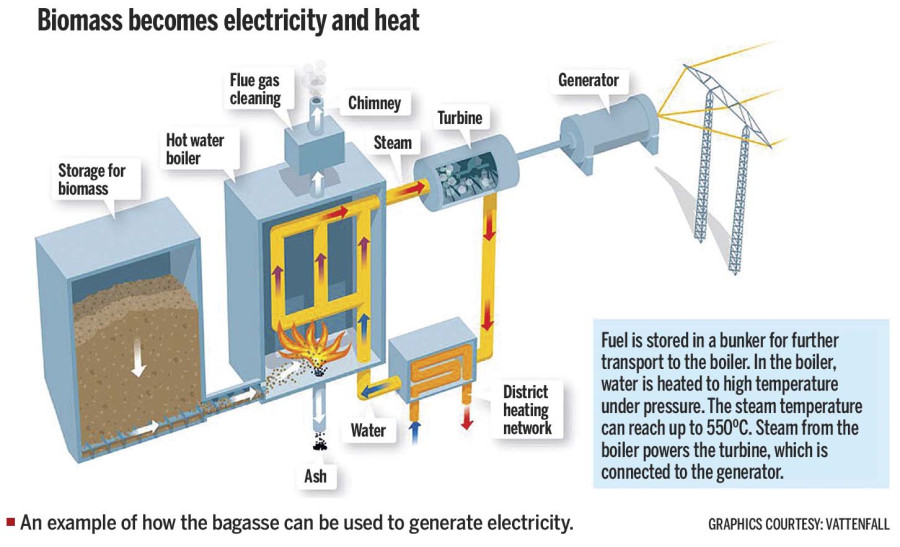Money
Sugar mills in Nepal poised to generate electricity
Nepal Electricity Authority (NEA) has signed a power purchase agreement (PPA) with Indu Shankar Sugar Mill to purchase electricity. As per the agreement, the sugar mill located in Sarlahi district will supply 3MW of electricity to the nearest substation of the state-owned power utility.
Nepal Electricity Authority (NEA) has signed a power purchase agreement (PPA) with Indu Shankar Sugar Mill to purchase electricity. As per the agreement, the sugar mill located in Sarlahi district will supply 3MW of electricity to the nearest substation of the state-owned power utility.
The mill will be generating electricity by burning bagasse, a residue left after extracting juice from sugarcane. The bagasse is a fibrous pulp that remains after the cane is crushed to extract juice. Once the bagasse is burnt, the steam generated from it is used to rotate the turbine to generate electricity.
Although the quantum of electricity that will be added to national grid is relatively low, the recent deal is significant in terms of the NEA’s aim to diversify its energy mix which is still dominated by hydroelectricity.
The power utility is also planning to sign PPA with two other sugar mill. The NEA’s top management has already approved the draft of the PPA to be signed with Everest Sugar and Chemical Industries of Mahottari and Reliance Sugar Mill of Bara.
Everest Sugar will supply 3MW while Reliance has claimed to supply 15MW of electricity to the power utility. The power utility has already sent a letter to owners of Everest Sugar asking them to be present with the bank guarantee and sign the agreement. “Once the owners of the factories come up with bank guarantee, we will sign the PPA with them,” said Prabal Adhikari, spokesperson at the NEA. Likewise, the power utility has asked representatives of Reliance Sugar Mill to initial the PPA which later has to be approved by the NEA chief before the final deal.
As per the agreement, the sugar factories have to generate electricity within a year and if they fail to generate electricity within a year, the power purchase agreement will be scrapped automatically. Similarly, the sugar mills have to construct the transmission line to evacuate the electricity generated at their factory to the nearby substation of the power utility.
“The NEA, however, will provide them the technical assistance to build the transmission line,” said Adhikari.
The mill owners will get Rs8.40 for a unit of electricity during the dry season lasting from December to May and Rs4.80 per unit during the wet season lasting from June to November.
The NEA is expecting to strike the PPA deal with more sugar mills in the future. “According to a study conducted by the Department of Electricity Development (DoED), around 150MW of electricity can be generated from the sugar mills operating in the country,” said Adhikari. “With this agreement in place, we are expecting some more mills coming to us with the proposal to generate electricity.”




 20.12°C Kathmandu
20.12°C Kathmandu













